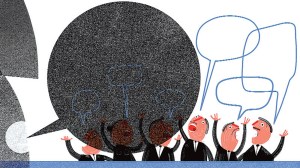Giuliani pins election hopes on later-voting states
US Presidential hopefull, Rudy Guiliani, banks on bigger states voting for election.

U.S. Republican presidential candidate Rudy Giuliani, who faces likely defeat in early-voting states on the road to the 2008 election, is pinning his hopes on larger, later-voting states instead.
The former New York City mayor is struggling to regain momentum after a series of setbacks. The next month could provide a severe test for his unorthodox approach to winning the Republican nomination.
He has not given up on New Hampshire, site of the first-in-the-U.S. primary. He returned for one public event on Monday and told an audience he would spend some of his Christmas holiday there.
In November, after weeks of flooding mailboxes with literature, Giuliani started running some $2.5 million (euro1.7 million) in TV ads to court New Hampshire voters. But polls still show him lagging Mitt Romney, the former Massachusetts governor, even as U.S. Senator John McCain surges.
“He tried to press a low taxes and fiscal conservative message here, but the core of his identity was still what he did on 9/11, and pocketbook issues have sort of trumped his national security card,” said Frank Cohen, a pollster at Franklin Pierce University.
Iowa, New Hampshire, South Carolina and other early voting states never have figured prominently in Giuliani’s strategy. It calls for securing victories in states that vote later and promise huge numbers of delegates to next summer’s nominating convention, beginning with Florida on January 29.
Giuliani has a wide lead in that state, and he hopes winning its 57 delegates will give him the delegate-count lead heading into the bigger-prize states that vote February. 5, including California, New York and Illinois.
Broadly, the race for the Republican nomination is in flux, and, at this point, no one candidate is positioned to have multiple wins in states before Florida.
In Iowa, Mike Huckabee, the former Arkansas governor who has risen in recent weeks, has an edge over Romney. In New Hampshire, Romney leads but McCain is giving chase. Michigan and Nevada are hard to read; Huckabee leads in South Carolina, with four other candidates tightly bunched behind him.
Giuliani aides argue that such a volatile situation – and
Huckabee’s rise to the detriment of Romney – greatly benefits their boss. They say it is possible that different candidates could win the early states, making for a fractured contest, with no one candidate riding a wave of momentum into Florida.
Beyond Florida, aides say Giuliani has double-digit leads in four states in which the winner takes all the delegates: New York, New Jersey, Connecticut and Delaware. He also has an advantage in California, where delegates are divided up by congressional districts. Plans call for Giuliani to start to run TV ads in Florida and some of the February 5 states soon after Christmas.
It is unclear, however, whether losses in the early states, coupled with recent campaign troubles, could cripple Giuliani before those later, bigger states vote.
Until recently, he had ridden atop national polls all year and defied conventional wisdom; the thrice-married backer of abortion rights and gay rights showed tremendous staying power in a Republican Party in which conservatives dominate.



- 01
- 02
- 03
- 04
- 05



























